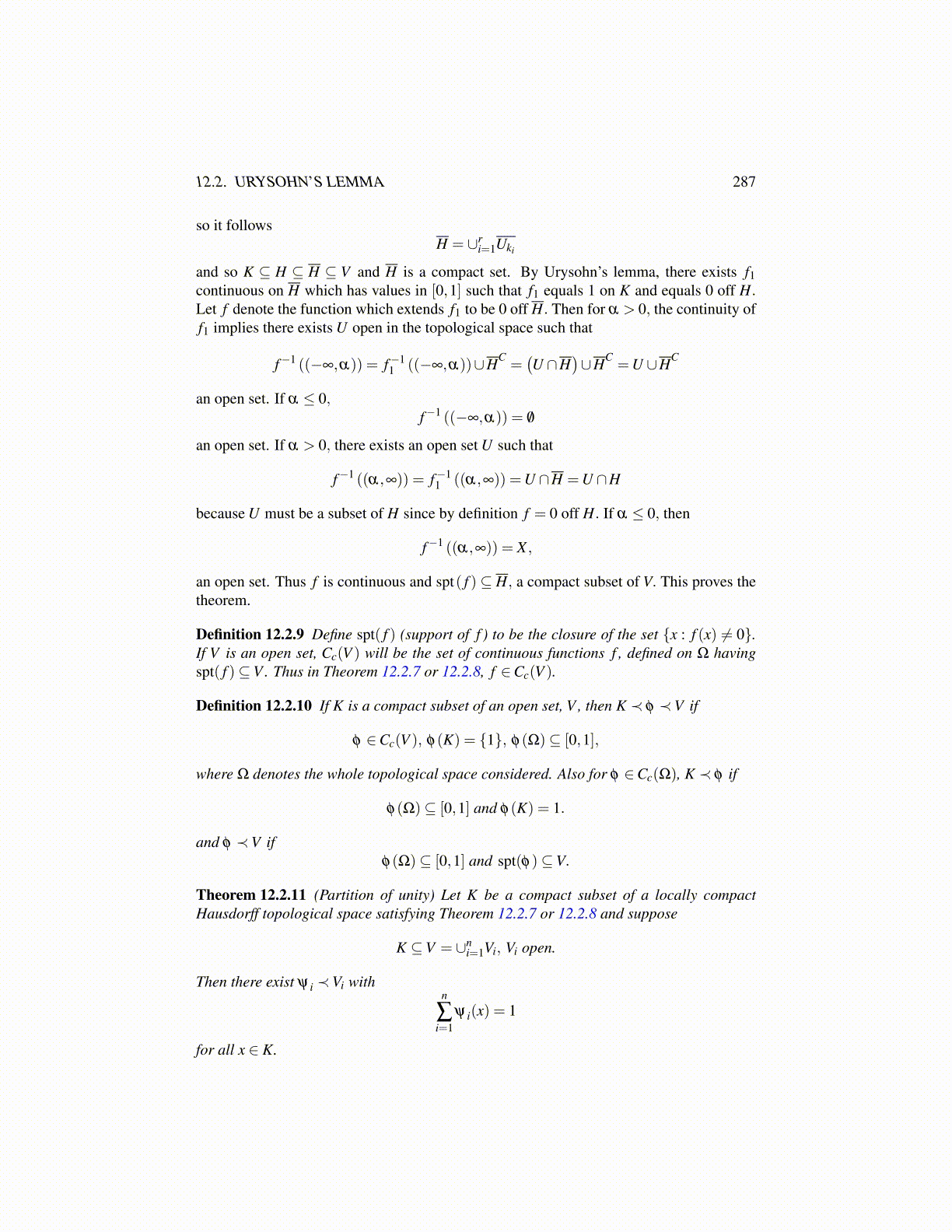
12.2. URYSOHN’S LEMMA 287
so it followsH = ∪r
i=1Uki
and so K ⊆ H ⊆ H ⊆ V and H is a compact set. By Urysohn’s lemma, there exists f1continuous on H which has values in [0,1] such that f1 equals 1 on K and equals 0 off H.Let f denote the function which extends f1 to be 0 off H. Then for α > 0, the continuity off1 implies there exists U open in the topological space such that
f−1 ((−∞,α)) = f−11 ((−∞,α))∪HC
=(U ∩H
)∪HC
=U ∪HC
an open set. If α ≤ 0,f−1 ((−∞,α)) = /0
an open set. If α > 0, there exists an open set U such that
f−1 ((α,∞)) = f−11 ((α,∞)) =U ∩H =U ∩H
because U must be a subset of H since by definition f = 0 off H. If α ≤ 0, then
f−1 ((α,∞)) = X ,
an open set. Thus f is continuous and spt( f )⊆ H, a compact subset of V. This proves thetheorem.
Definition 12.2.9 Define spt( f ) (support of f ) to be the closure of the set {x : f (x) ̸= 0}.If V is an open set, Cc(V ) will be the set of continuous functions f , defined on Ω havingspt( f )⊆V . Thus in Theorem 12.2.7 or 12.2.8, f ∈Cc(V ).
Definition 12.2.10 If K is a compact subset of an open set, V , then K ≺ φ ≺V if
φ ∈Cc(V ), φ(K) = {1}, φ(Ω)⊆ [0,1],
where Ω denotes the whole topological space considered. Also for φ ∈Cc(Ω), K ≺ φ if
φ(Ω)⊆ [0,1] and φ(K) = 1.
and φ ≺V ifφ(Ω)⊆ [0,1] and spt(φ)⊆V.
Theorem 12.2.11 (Partition of unity) Let K be a compact subset of a locally compactHausdorff topological space satisfying Theorem 12.2.7 or 12.2.8 and suppose
K ⊆V = ∪ni=1Vi, Vi open.
Then there exist ψ i ≺Vi withn
∑i=1
ψ i(x) = 1
for all x ∈ K.